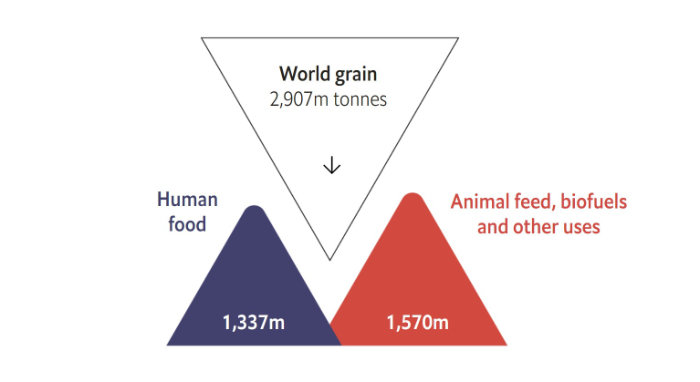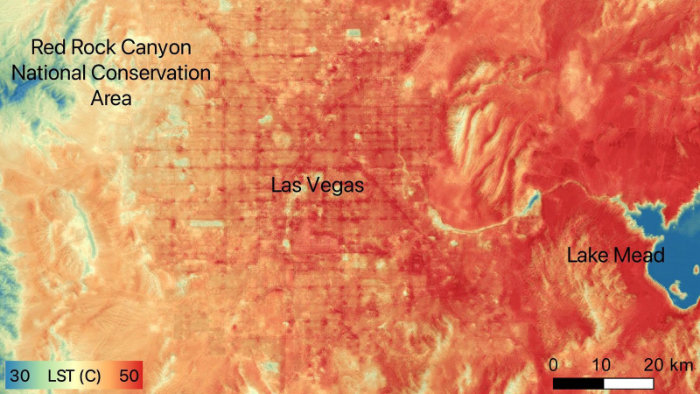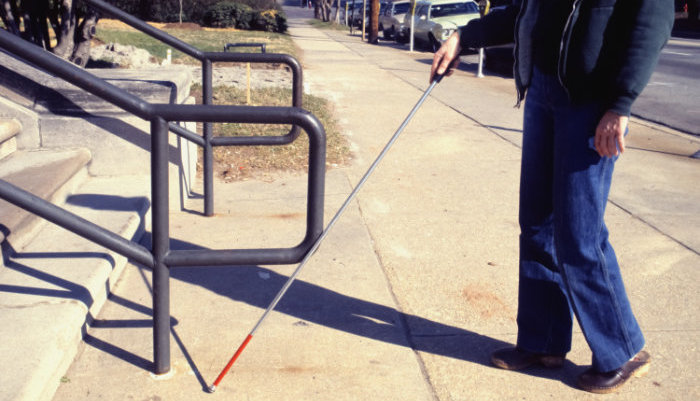In short
- There’s a deadly meningococcal outbreak in Florida
- The Louisiana insurance market is collapsing, leaving thousands uninsured ahead of hurricane season
- The Rio Grande is predicted to dry up completely all the way to Albuquerque this summer
Deadly meningococcal outbreak in Florida
Affecting:
- Men who have sex with men, living in or traveling to FL
- College students in Leon County, FL
- More than 40 infections, and 12 deaths
Symptoms of meningococcal disease can first appear as a flu-like illness and rapidly worsen. Meningococcal infections can lead to meningitis (infection of the lining of the brain and spinal cord) and bloodstream infections (septicemia), both of which can quickly become deadly.
CDC is recommending people at risk get vaccinated: MenACWY for men, and MenB for college students.
Meningococcal meningitis’ most common symptoms include:
- Fever
- Headache
- Stiff neck
Additional symptoms:
- Nausea
- Vomiting
- Photophobia (eyes being sensitive to light)
- Altered mental status (confusion)
Meningococcal septicemia’s (aka meningococcemia) symptoms may include:
- Fever and chills
- Fatigue (feeling tired)
- Vomiting
- Cold hands and feet
- Severe aches or pain in the muscles, joints, chest, or abdomen (belly)
- Rapid breathing
- Diarrhea
- In the later stages, a dark purple rash
Large gatherings could spread monkeypox (MXP), but risk to the general public remains low
- >4,000 cases across 47 countries
- 1 death (in non-endemic countries)
- The disease is still spreading mostly between men who have sex with men, but community spread is also happening, and large gatherings (like festivals) could be dangerous.
- Many cases in this outbreak don’t present with the classic symptoms of monkeypox (fever, swollen lymph nodes, and a centrifugal rash). Atypical symptoms include: the presence of only a few or just a single injury; lesions that start in the genital or perineal/perianal area and don’t spread; lesions that appear at different (asynchronous) stages of development; and the presence of lesions before fever, malaise, or other constitutional symptoms.
- Two countries indicated that infection occurred through semen and vaginal fluids. More study needs to be done, but using a condom is advised.
- The risk of MPX to the general public remains low.
- Social distancing, washing hands frequently, mask-wearing (if worried about aerosol/droplets), and wearing a condom during sex are recommended.
WHO does NOT consider the monkeypox outbreak a global public health emergency for now, however, “controlling further spread requires intense response efforts.” It’s possible that WHO is being conservative to prevent being accused of over-reacting. WHO will reconvene in a few weeks’ time to reassess the situation:
Deeply concerned about the #Monkeypox outbreak, which represents a serious, evolving threat. I convened an Emergency Committee. The experts advised that it currently doesn't constitute a Public Health Emergency of International Concern. My statement: https://t.co/sZIlUSdoGM pic.twitter.com/puOwg4RFTX
— Tedros Adhanom Ghebreyesus (@DrTedros) June 25, 2022
Cases in the US might be undercounted due to low testing rates. And the widespread could be due to a mutation making it more transmissible.
Extremely transmissible and immunity-evading Covid variants BA.4/5 becoming dominant in the US, children under 5 can finally be vaccinated
Omicron variants BA.4/5 will become dominant in the US “in a few weeks.” Both are able to evade immunity from vaccination and past infections, including previous omicron variant infections (although being recently boosted helps a little).
Pfizer and Moderan’s new boosters work against the new Omicorn variants (although not as good as against the original Omicron):
Important to note that both Moderna and Pfizer/BioNTech Omicron (BA-1) booster shots had 3-fold lower neutralizing antibody response to BA.4/5 than to BA.1
[Pfizer data just put out this morning) pic.twitter.com/KDKlf0ULtj— Eric Topol (@EricTopol) June 25, 2022
Children under 5 can now finally be vaccinated. Misinformation will be rampant—here’s what to do about it.
A new large study from The Lancet shows that long Covid affects children of all ages, including infants. The most common symptoms vary by age and usually persist for at least two months. Children up to age 3 had mood swings, rashes, and stomachaches. Children aged 4 to 11 also had memory and concentration problems. The 12- to 14-year-olds had memory and concentration problems, mood swings, and fatigue. Children 3 and under seemed to have the most problems.
Blind or visually impaired people can now order one set of two free Covid tests specially developed for them. The tests can be ordered here. It’s unclear how they work, but they require a smartphone with Bluetooth and to download an app.
The CDC released the Interactive School Ventilation Tool to help improve airflow. You can also build a DYI air purifier that can be used in a classroom following community member Eric’s tips here.
School administrators and building managers: Summer school in session? Use CDC’s Interactive School Ventilation Tool to learn how to improve your school’s air flow to help protect students and teachers from #COVID19. More: https://t.co/HYep0kmtGv. pic.twitter.com/wzI1Ut48ab
— CDC (@CDCgov) June 24, 2022
If you still have the interest and mental capacity to read about Covid, here are a couple of recent articles I found interesting and thought-provoking:
Five COVID Numbers That Don’t Make Sense Anymore, and Was the Delta Variant 😂 for Children?
Economy, supply chain, food security
Louisiana’s insurance market is collapsing. At least seven private insurance companies shut down as a result of Hurricane Ida. The collapse of the market threatens to leave tens of thousands of homeowners without insurance during the most dangerous time of year. The turmoil in Louisiana is yet another indication of how ill-prepared the property and insurance industries are to deal with the financial consequences of climate-related disasters.
The US Education Department agreed to cancel $6 billion in student loans for students who have been defrauded.
G7 will ban imports of Russian gold. Despite sanctions, Putin says Russia’s trade with China, India, Brazil, and South Africa has risen by 38%. But Russia has now slid into historic debt default.
US port backups are spreading to freight rail. Containers stack up because manufacturers and retailers aren’t picking up and unloading cargo fast enough. Importers trying to handle the flow of goods are seeing costs rise and shipping get more complicated.
Just a reminder that most of the world’s grain is not eaten by humans. Nearly half of all grain is either burned as fuel or eaten by animals.

The House committee voted to ban the sale of US farmland to Russia, China, North Korea, and Iran. The USDA reports that foreign investors owned 37.6 million acres, or almost 3%, of US agricultural land at the end of 2020.
Geopolitics
NATO will increase the number of troops of its high-readiness NATO Response Force from 40,000 to “well over 300,000.” National troops will probably be put on different alert levels as part of NATO’s new force structure so the alliance has more combat-ready forces at its disposal in case of an emergency. NATO is also expected to change its language on Russia from describing it as a strategic partner to a “direct threat.” NATO is still working on convincing Turkey to approve Sweden and Finland’s bids to join the alliance.
The NATO Summit (28-30 June) will also address China for the first time, and the challenges that Beijing poses to NATO’s security, interests, and values. Not so long ago, President Xi Jinping signed a trial order allowing ‘military operations other than war’ beyond China’s borders. More media coverage of the summit here.
Putin will send nuclear-capable missiles to Belarus in the coming months. He also offered to upgrade Belarus’ warplanes to make them capable of carrying nuclear weapons.
A Russian group hacked state and private Lithuanian websites in retaliation for Lithuania’s blocking shipments to Kaliningrad, a Russian enclave in between the Baltics and Poland.
Ukraine’s intelligence chief is saying that Putin has two years left to live and that if Ukraine continues to receive substantial military aid from its allies, it will score decisive wins in August. Budanov did not present concrete evidence, so it’s unclear if this is true intel or a way to provide a morale boost to Ukraine and its allies or discourage the Russian. Not so long ago, US intelligence claimed Putin had undergone cancer treatment in April.
Opinions: The ‘Fucking Hammer to the Head’ That Could End Putin (explicit title, but features interviews with former senior ODNI officials, CIA, etc) and America ignores Africa at its own peril.
Climate change, environment, extreme weather
NOAA is monitoring three disturbances for possible development:
The Atlantic tropical season is trending more active with @NHC currently monitoring three disturbances for possible development.https://t.co/meemB5d6ch https://t.co/IFIj5yowk7
— National Weather Service (@NWS) June 27, 2022
There is a near 100% chance that a tsunami more than a meter high could hit major cities on or near the Mediterranean coast in the next 30 years, according to Unesco. Tsunamis are not new to the Mediterranean, but the risk is predicted to soar as sea levels rise.
Transportation makes up a fifth of all food system carbon emissions. A recent study shows that food transportation has a higher carbon footprint than previously estimated.
Los Angeles may ban new gas stations as part of its climate emergency plan.
Extreme heat
Satellite images of Las Vegas illustrate how extreme urban heat islands can be. Unshaded streets got up to 122 F (50 C) during the recent heat dome event.

In a world first, Seville, Spain, will name and classify heatwaves in an effort to better protect residents during periods of extreme heat.
Read here about how volunteers are helping protect the homeless from heatwaves.
In pictures: How San Antonio residents are coping with rising temperatures.
US drought
The Rio Grande is predicted to dry up completely all the way to Albuquerque this summer for the first time since the 1980s.
Both of California’s largest reservoirs are at critically low levels. Officials confirmed that last month Lake Oroville and Shasta Lake were at 55% and 40% capacity respectively.
California’s water restrictions are finally making a dent. Demand was 5% lower than anticipated, but officials say the efforts need to be sustained as the summer is still long.
The rest
Now that Roe v. Wade is overturned, there is a risk that extremist groups (from both political spectrum) might call for violence. DHS warned that churches, judges, and abortion providers might be targets of violence “for weeks.” In the meantime, a truck driver in Iowa rammed into an abortion rights protest and injured two people. And police used tear gas to disperse protesters outside of Arizona’s state capitol building.
Here is our guide on how to prepare for and survive civil unrest, and a list of relevant posts.
13% of the US Army National Guard could soon be dismissed due to a Covid vaccination deadline.
SpaceX warned that its Starlink broadband network would become unusable for most Americans if a proposal to use the 12 GHz band for terrestrial 5G is approved.
Wild solar weather is causing satellites to plummet from orbit. And it’s going to get worse as the new solar cycle intensifies. Swarm satellites began sinking toward Earth at an unusually fast rate. The change coincided with the onset of the new solar cycle. Experts think it might be the beginning of some difficult years for spacecraft orbiting our planet.

You are reporting the comment """ by on